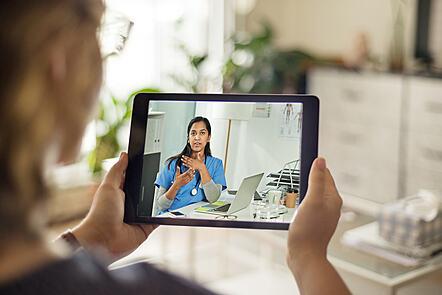MOOC List is learner-supported. When you buy through links on our site, we may earn an affiliate commission.

MOOC List is learner-supported. When you buy through links on our site, we may earn an affiliate commission.
This course will provide healthcare professionals with the tools to conduct consultations and obtain basic observations remotely and safely, including basic triage.
You’ll learn how to conduct history taking virtually and take essential observations in a remote setting. You’ll also consider safe patient management and how to triage patients via remote consultations.
What will you achieve?
By the end of the course, you‘ll be able to...
- Describe different models for remote consultation
- Describe the concept of triage within a remote consultation
- Identify and assess the potential risks with remote consultations
- Explain how to obtain basic observations during a remote consultation
- Apply risk stratification tools to remote consultations
- Assess safeguarding risks within a remote consultation
- Identify potential red flags including those for sepsis
- Describe how to close the consultation using the Neighbour model as a framework
- Identify appropriate safety netting
- Describe how to document the consultation appropriately
Who is the course for?
The course is designed for all healthcare professionals working in clinical practice where there’s a need to undertake remote consultations.
This may include pharmacists working in a community pharmacy or GP practice, non-medical prescribers including nurses and pharmacist, GPs, practice nurses, physicians associates, paramedics working in Advanced Clinical Practitioner roles, healthcare professionals working in outpatient clinics or telehealth, trainee doctors, pharmacy and nurse students, and students in secondary education considering training as a healthcare professional.
Syllabus
Week 1: Models and risks
Week 2: Basic observations and managing risks
Week 3: Applying models and documenting your consultations
MOOC List is learner-supported. When you buy through links on our site, we may earn an affiliate commission.
MOOC List is learner-supported. When you buy through links on our site, we may earn an affiliate commission.
